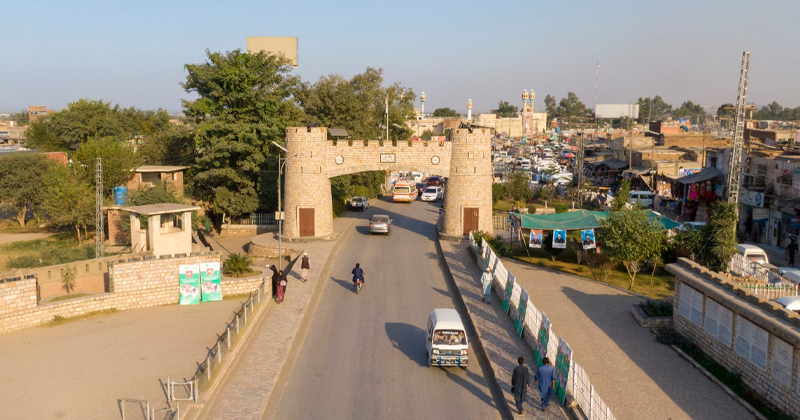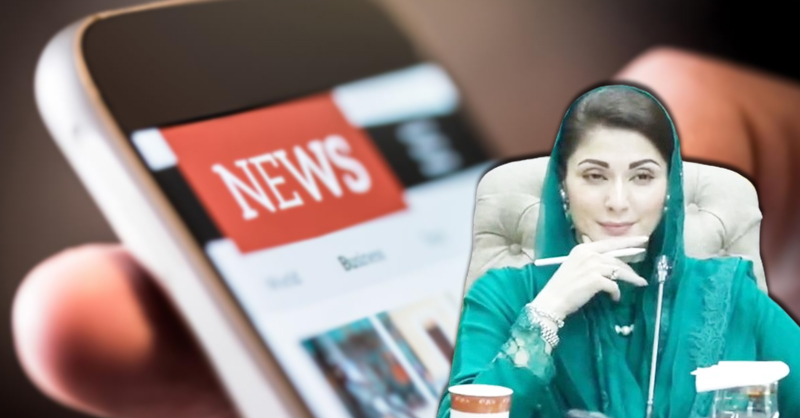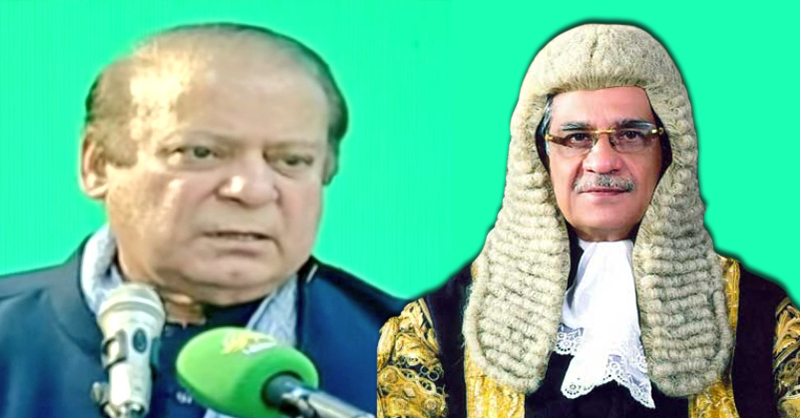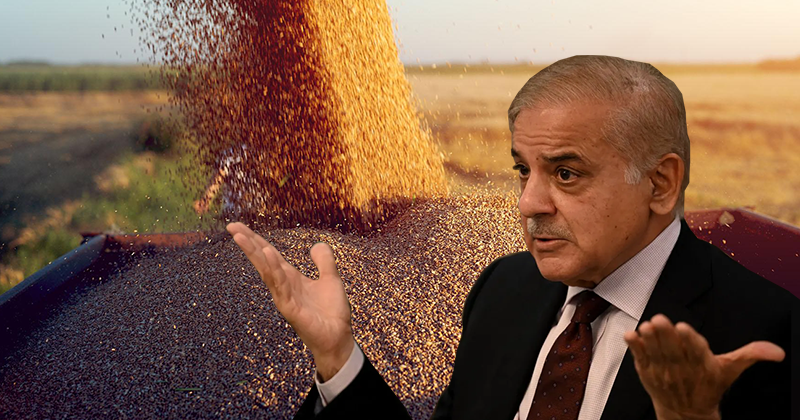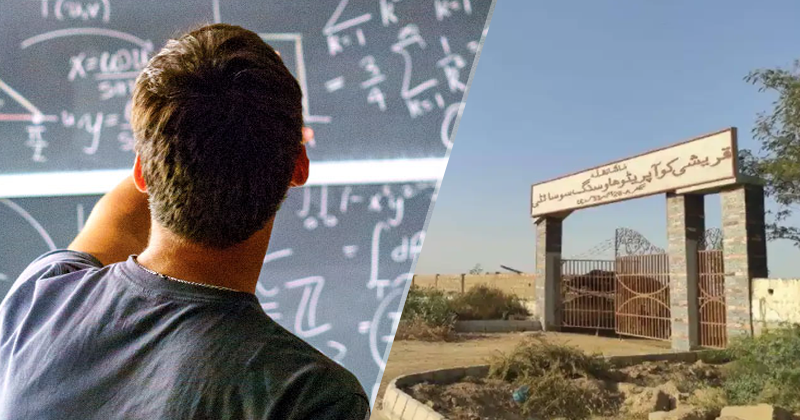We offered our trust to the heavens, to the earth, and to the mountains, but they refused the burden, and were afraid to receive it. Man undertook to bear it, but he has proved a sinner and a fool. Allah will surely punish the hypocrites and the unbelievers, both men and women, but pardon believing men and believing women, Allah is Forgiving and Merciful. (33:72-33)
The Quran is regarded as literary masterpiece and respected by both the Muslims and non-Muslims and its place in classics of world literature is well established. In his translation of the Quran, Marmaduke Pickthall described it as that inimitable symphony, the very sound of which moves man into tears and ecstasy, and the German poet, Goethe had said: However often we turn to it, it first sounds terse, it soon attracts, astounds, and in the end enforces our reverence. Its style is truly sublime, stern, grand and magical and that is the essence of this book.
The other reason responsible for the popularity of the Qur'an among the people was its extraordinary, supernatural literary and artistic dimension depicted in its rhetoric and eloquence. It was this strong literary attraction towards the Qur'an, which had an appeal for the people, that prompted them to immediately memorize its verses. But unlike Bible which has been exposed to meddling by the Christians who think they are improving on the original but nobody could ever give himself the permission of meddling with the sacred text the Quran. The Qur'an immediately declared in one of its verses: Had he [the Prophet (SAW)] invented against Us any sayings, We would have seized him by the right hand, then We would surely have cut his life ven. (69:44-46) There are several other verses in the Qur'an that forbid forgery in relation to the Word of Allah. The gravity of this sin as stressed by the Qur'an had profound impression upon minds and served as a severe discouragement in this regard. In this way, before any type of alterations could have taken place in its verses, they were repeated often, thus reaching a stage that it was impossible to increase, diminish or alter even a single word in this heavenly book. Accordingly, there is neither any need of any discussion about the Qur'an from the point of view of authenticity, nor does any scholar of the Qur'an throughout the world see any necessity of such a discussion.
The study and knowledge of the Qur'an is essential for every learned person as well as for all faithful believers. It is specially essential for those scholars who are interested in the study of man and society, since this book has been effectively instrumental not only in moulding the destinies of Islamic societies, but also in shaping the destiny of the human race as a whole. A brief glance over history would be enough to provide sufficient proof of the claim that there has been no such book that has ever influenced human societies to the magnitude of the Qur'an. It is for the same reason that the Qur'an automatically steps into the precincts of sociological discussions, and becomes the elemental constituent of the subjects of research in this discipline. This means that any deep study and profound research in the field of world history of the last fourteen hundred years, is impossible without the knowledge of the Qur'an. The study of the Qur'an is essential for every committed Muslim, since it is the main source and foundation of the religious thought and faith. Whatsoever gives meaning, essence and sanctity to his existence lies in the Holy Qur'an.
The Qur'an is not just like other religious books which are content to discuss the problems of existence of God and creation in cryptic tones, or like those which merely convey a series of simple moral advice and counsels, so that those who believe in them are hopelessly left to search for guidance in other sources. Unlike such books the Qur'an formulates the tenets of faith besides communicating the ideas and views that are essential for a man of faith and belief. Similarly, it also lays down the principles of moral and ethical values for the purpose of social and familial existence. It leaves the job of explanation, interpretation, and occasionally that of ijtihad and application of principles (usul) to secondary matters (furu') to be dealt with through ijtihad and sunnah. Accordingly, utilization of any other source depends on the prior knowledge of the Qur'an. The Qur'an is the criterion and standard for judging all other sources. We should judge hadith and sunnah in the light of the Qur'an. We can accept it only when it is in accordance with the Qur'an, otherwise we do not accept it.
The Qur'an is absolutely exempt from all such criteria that may be applicable to all worldly books. It is regarded as the exclusively singular book since the ancient times. No book of ancient days has remained above doubt to such extent despite a long lapse of several hundred years. No one can ever say about it that such and such a surah has a questionable authenticity or such and such a verse that is present in such and such a manuscript is missing from another manuscript. There is no place for the slightest doubt that all of the verses that exist in the Qur'an are those conveyed to Muhammad ibn 'Abd Allah (S) who communicated them as the miraculous Word of God. Nobody can ever claim that another version of the Qur'an existed anywhere, or still exists. There has not been any orientalist either who would begin the study of the Qur'an by saying, "let us trace from the earliest of the manuscripts of the Qur'an to see what was included in it and what was not." The Qur'an is absolutely free from this kind of investigation necessary in case of such books as the Bible, the Torah, Avesta and every other ancient or not so ancient work.
Only for the study of the Qur'an no such questions arise, and the Qur'an is far above the usual norms of authenticity and the craft of manuscript reading. Moreover, besides the fact that the Qur'an is one of the heavenly scriptures and has been regarded by its followers as the most basic and authentic proof of the Prophet Mohammed's (SAW) claim to prophethood, and as the greatest of his miracles. The Qur'an, unlike the Torah, was not revealed at one time and was not subject to later difficulties in distinguishing the true manuscript. The verses of the Qur'an were revealed gradually during a span of twenty-three years. From the very first day, the eager Muslims memorized its verses, preserved and recorded them. Those were the days when the Muslim society was quite a simple society. No other book existed besides the Qur'an, and the Muslims were inevitably inclined to memorize its verses. Their clear, unmarked minds and their powerful memory, their general ignorance about reading and writing, all these factors assisted them in acquiring and retaining their information regarding the Qur'an. This is the reason why the message of the Qur'an, which was so congenial to their sensibilities and their natural propensities, got effectively imprinted on their hearts like inscription on stone. Since they believed it to be the Word of God, it was sacred to them also. They couldn't permit themselves that a single word or even a letter of it be altered or replaced in its text. They tried to acquire the nearness to God by reciting its verses. It should be noted here that from the very early days the Prophet (S) had engaged a group of scribes for the purpose of writing down the Qur'an, who were known as the "Scribes of the Revelation." This should be regarded as one of the merits in favour of the Qur'an from which all other ancient books are excluded. The absence of any alteration and change in the Word of God was on account of this process of writing and recording from the very beginning.
The Quran revealed to the Prophet Mohammed (SAW) 1400 years ago is not a textbook of science; it is, however, a highly scientific book. It makes numerous references to natural phenomena including the movements a backed by modern science that has astounded many of heavenly bodies and the behaviour of various creatures. These are in perfect harmony with observed realities and this is an amazing fact, the significance of which is not often underlined. In a book from its time, one can see that it makes so many claims about physical as well as spiritual matters that it would not be surprising to find errors, but the Quran is totally free from these. The Quran is also a scientific book and makes numerous references to natural phenomena including movements of heavily bodies, earth, behavior of different creatures, embryology, cosmology, geology, changing of weathers and water etc, which are astonishing accurate as discovered by science now.
In Surah Az-Zumar ayah 6th the Quran introduces the concept of stages in human development: He makes you in the wombs of your mothers in stages, one after another, within three veils of darkness. The embryo develops in the mothers womb (uterus) protected by three veils or layers and the Quran and Sunnah have classified the development as, follows: We (Allah) created man from quintessence of clay. We then placed him as a nutfah (drop of semen) in a place of settlement, firmly fixed, We then made the nutfah into an alaqah (clot) and then We changed the alaqah into mudgah (lump) and then We made out of mudgah, izam (bones), then we clothed the bones with lahm (flesh), then We caused him to grow and come into being and attain the definitive (human form). So, blessed be Allah, the best to create. This clearly shows more knowledge than both Aristotle and Galen had. This describes the development in detail, describing how the foetus looks at each stage. This knowledge could not have been conventionally gained without using new equipment such as ultrasound and the microscope, which were not existence in Prophets (SAW) time. So, these ayats must have been divinely relayed to the Prophet (SAW).
The Quran is regarded as literary masterpiece and respected by both the Muslims and non-Muslims and its place in classics of world literature is well established. In his translation of the Quran, Marmaduke Pickthall described it as that inimitable symphony, the very sound of which moves man into tears and ecstasy, and the German poet, Goethe had said: However often we turn to it, it first sounds terse, it soon attracts, astounds, and in the end enforces our reverence. Its style is truly sublime, stern, grand and magical and that is the essence of this book.
The other reason responsible for the popularity of the Qur'an among the people was its extraordinary, supernatural literary and artistic dimension depicted in its rhetoric and eloquence. It was this strong literary attraction towards the Qur'an, which had an appeal for the people, that prompted them to immediately memorize its verses. But unlike Bible which has been exposed to meddling by the Christians who think they are improving on the original but nobody could ever give himself the permission of meddling with the sacred text the Quran. The Qur'an immediately declared in one of its verses: Had he [the Prophet (SAW)] invented against Us any sayings, We would have seized him by the right hand, then We would surely have cut his life ven. (69:44-46) There are several other verses in the Qur'an that forbid forgery in relation to the Word of Allah. The gravity of this sin as stressed by the Qur'an had profound impression upon minds and served as a severe discouragement in this regard. In this way, before any type of alterations could have taken place in its verses, they were repeated often, thus reaching a stage that it was impossible to increase, diminish or alter even a single word in this heavenly book. Accordingly, there is neither any need of any discussion about the Qur'an from the point of view of authenticity, nor does any scholar of the Qur'an throughout the world see any necessity of such a discussion.
The study and knowledge of the Qur'an is essential for every learned person as well as for all faithful believers. It is specially essential for those scholars who are interested in the study of man and society, since this book has been effectively instrumental not only in moulding the destinies of Islamic societies, but also in shaping the destiny of the human race as a whole. A brief glance over history would be enough to provide sufficient proof of the claim that there has been no such book that has ever influenced human societies to the magnitude of the Qur'an. It is for the same reason that the Qur'an automatically steps into the precincts of sociological discussions, and becomes the elemental constituent of the subjects of research in this discipline. This means that any deep study and profound research in the field of world history of the last fourteen hundred years, is impossible without the knowledge of the Qur'an. The study of the Qur'an is essential for every committed Muslim, since it is the main source and foundation of the religious thought and faith. Whatsoever gives meaning, essence and sanctity to his existence lies in the Holy Qur'an.
The Qur'an is not just like other religious books which are content to discuss the problems of existence of God and creation in cryptic tones, or like those which merely convey a series of simple moral advice and counsels, so that those who believe in them are hopelessly left to search for guidance in other sources. Unlike such books the Qur'an formulates the tenets of faith besides communicating the ideas and views that are essential for a man of faith and belief. Similarly, it also lays down the principles of moral and ethical values for the purpose of social and familial existence. It leaves the job of explanation, interpretation, and occasionally that of ijtihad and application of principles (usul) to secondary matters (furu') to be dealt with through ijtihad and sunnah. Accordingly, utilization of any other source depends on the prior knowledge of the Qur'an. The Qur'an is the criterion and standard for judging all other sources. We should judge hadith and sunnah in the light of the Qur'an. We can accept it only when it is in accordance with the Qur'an, otherwise we do not accept it.
The Qur'an is absolutely exempt from all such criteria that may be applicable to all worldly books. It is regarded as the exclusively singular book since the ancient times. No book of ancient days has remained above doubt to such extent despite a long lapse of several hundred years. No one can ever say about it that such and such a surah has a questionable authenticity or such and such a verse that is present in such and such a manuscript is missing from another manuscript. There is no place for the slightest doubt that all of the verses that exist in the Qur'an are those conveyed to Muhammad ibn 'Abd Allah (S) who communicated them as the miraculous Word of God. Nobody can ever claim that another version of the Qur'an existed anywhere, or still exists. There has not been any orientalist either who would begin the study of the Qur'an by saying, "let us trace from the earliest of the manuscripts of the Qur'an to see what was included in it and what was not." The Qur'an is absolutely free from this kind of investigation necessary in case of such books as the Bible, the Torah, Avesta and every other ancient or not so ancient work.
Only for the study of the Qur'an no such questions arise, and the Qur'an is far above the usual norms of authenticity and the craft of manuscript reading. Moreover, besides the fact that the Qur'an is one of the heavenly scriptures and has been regarded by its followers as the most basic and authentic proof of the Prophet Mohammed's (SAW) claim to prophethood, and as the greatest of his miracles. The Qur'an, unlike the Torah, was not revealed at one time and was not subject to later difficulties in distinguishing the true manuscript. The verses of the Qur'an were revealed gradually during a span of twenty-three years. From the very first day, the eager Muslims memorized its verses, preserved and recorded them. Those were the days when the Muslim society was quite a simple society. No other book existed besides the Qur'an, and the Muslims were inevitably inclined to memorize its verses. Their clear, unmarked minds and their powerful memory, their general ignorance about reading and writing, all these factors assisted them in acquiring and retaining their information regarding the Qur'an. This is the reason why the message of the Qur'an, which was so congenial to their sensibilities and their natural propensities, got effectively imprinted on their hearts like inscription on stone. Since they believed it to be the Word of God, it was sacred to them also. They couldn't permit themselves that a single word or even a letter of it be altered or replaced in its text. They tried to acquire the nearness to God by reciting its verses. It should be noted here that from the very early days the Prophet (S) had engaged a group of scribes for the purpose of writing down the Qur'an, who were known as the "Scribes of the Revelation." This should be regarded as one of the merits in favour of the Qur'an from which all other ancient books are excluded. The absence of any alteration and change in the Word of God was on account of this process of writing and recording from the very beginning.
The Quran revealed to the Prophet Mohammed (SAW) 1400 years ago is not a textbook of science; it is, however, a highly scientific book. It makes numerous references to natural phenomena including the movements a backed by modern science that has astounded many of heavenly bodies and the behaviour of various creatures. These are in perfect harmony with observed realities and this is an amazing fact, the significance of which is not often underlined. In a book from its time, one can see that it makes so many claims about physical as well as spiritual matters that it would not be surprising to find errors, but the Quran is totally free from these. The Quran is also a scientific book and makes numerous references to natural phenomena including movements of heavily bodies, earth, behavior of different creatures, embryology, cosmology, geology, changing of weathers and water etc, which are astonishing accurate as discovered by science now.
In Surah Az-Zumar ayah 6th the Quran introduces the concept of stages in human development: He makes you in the wombs of your mothers in stages, one after another, within three veils of darkness. The embryo develops in the mothers womb (uterus) protected by three veils or layers and the Quran and Sunnah have classified the development as, follows: We (Allah) created man from quintessence of clay. We then placed him as a nutfah (drop of semen) in a place of settlement, firmly fixed, We then made the nutfah into an alaqah (clot) and then We changed the alaqah into mudgah (lump) and then We made out of mudgah, izam (bones), then we clothed the bones with lahm (flesh), then We caused him to grow and come into being and attain the definitive (human form). So, blessed be Allah, the best to create. This clearly shows more knowledge than both Aristotle and Galen had. This describes the development in detail, describing how the foetus looks at each stage. This knowledge could not have been conventionally gained without using new equipment such as ultrasound and the microscope, which were not existence in Prophets (SAW) time. So, these ayats must have been divinely relayed to the Prophet (SAW).






















